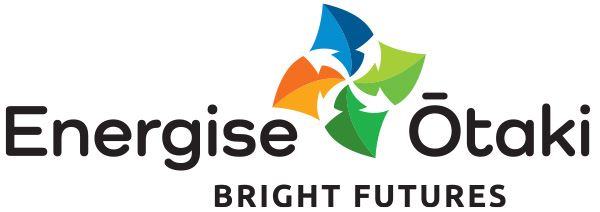This opinion editorial has been written by Bill Heaps.
Bill is the Founding Director of Energy for Good Limited and Independent Director of the Community Energy Network (CEN). Since 1990, Bill has held senior executive positions in New Zealand’s electricity industry. He undertook influential leadership roles in the development and operation of electricity markets, including Chair of the Wholesale Market Development and Retail Market Development Advisory Groups for the Electricity Commission.
Bill has also been an advisor to the Electricity Authority, Commerce Commission, and international electricity regulators. Bill was Independent Chair of the Vulnerable and Medically Dependent Working Group which engaged broad stakeholder representation to develop improvements in the way that vulnerable electricity consumers are managed by electricity retailers. This work is continuing through the Electricity Retailers Association of New Zealand (ERANZ). Throughout his career, Bill has focused on customer service and is continuing to do this in innovative ways through his new venture – Energy for Good.
Excerpts from this opinion were used in a recent NewsRoom article
In New Zealand, the most vulnerable people face the highest costs for electricity – yet a simple solution to reduce these costs would be to charge them the lowest price.
However, in the current market with high spot prices, vulnerable residential consumers can face increasingly higher costs. Whilst the Government’s Electricity Price Review (EPR) in May 2019, proposed a solution to address the price problem, its focus was only on social housing agency and/or Work and Income clients. Addressing the issue of high electricity costs requires a broader reach combined with support for other contributing factors, such as how electricity is used.
Nationwide organisation Community Energy Network – who has made over 120,000 homes healthier in New Zealand in the past 20 years – believes the answer is to allow community support organisations to become electricity retailers or partner with existing retailers. This lets them align electricity retail services with broader community and social activities.
A major benefit of Community Support Retailers (CSR) is that they may also supply customers who are not facing hardship themselves but wish to support those who are. For example, such a consumer may pay a higher unit price for their electricity in the knowledge that the additional funds are being used to support others experiencing hardship. Also, a CSR may need additional customers to enable it to realise the economy of scale required to be a viable i.e., to cover its fixed operating costs.
For community retailers to become a reality, a single critical component is needed – a reasonably priced electricity supply contract. This is similar to the bulk supply contract that the EPR recommended that the Government encourage. Yet it needs to be made available more broadly to other organisations working on relieving energy hardship.
The contracts are known as hedges, this is because they manage, or hedge, the volatile wholesale spot market prices over time. The natural sellers of hedge contracts are electricity generators – this is because hedges also provide longer-term price certainty for generators. In New Zealand, electricity generating businesses such as Meridian, Mercury, Genesis and Contact also own retail operations, which effectively gives them an internally hedged position.
So why would a generator offer additional hedge contracts to new entrant retailers at sufficiently favourable rates to enable it to compete with the generator’s own retailer? The answer is that they don’t unless a positive value proposition is achievable for them. Relieving energy hardship does not, on its own, produce a positive value incentive for generator/retailer businesses.
This contract availability issue is currently blocking community organisations from providing innovative and targeted solutions to people experiencing the hardship issues that seriously concerned the EPR panel.
Options to ensure reasonable hedge contracts are made available for community retailers include making structural changes to the electricity sector such as:
- mandating the full separation of retail and generation businesses;
- restructuring the hedge contract market, to ensure all retailers have equal access to standard contracts.
However, structural changes take considerable time to design and implement, including many rounds of consultation.
Introducing a humanitarian hedge
The current situation is too urgent to wait for structural changes. Solutions must be found and implemented now. One solution is a concept that has been called a ‘Social Hedge’, or more appropriately a ‘Community Support Hedge’.
In concept, a Community Support Hedge is simple:
- all large electricity generating businesses provide appropriately structured and priced hedge contracts for the use of retailers that meet the criteria for a CSR; and
- to ensure that the hedges are appropriately structured and priced, the contracts offered to CSR cannot be higher priced and/or have less favourable conditions than the most favourable contract/arrangement the generator has with any other party (including its own incumbent retail business).
The quantity of Community Support Hedges should be sufficient to enable all consumers in hardship to access the lowest available prices on the most favourable terms. As well as provide sufficient additional capacity to enable community retailers to maintain viable electricity retail operations.
For example, New Zealand currently has approximately 2.21m connected customers (ICPs)[1]. Using the EPR’s estimate[2] that more than 100,00 families are experiencing energy hardship; we can calculate that hedge contracts sufficient for at least 4.5% of total ICPs will need to be made available for CSR. To ensure viable CSR operations, additional contract quantities equivalent to a further 2% may be required, therefore 6.5% in total. As annual residential electricity sales are approximately one third of total electricity sales, the quantity of New Zealand’s electricity supply needed to be covered by community support hedges is likely to be as low as 2% of total annual electricity sales.
Implementing the Community Support Hedge arrangement may need Government enforcement through legislation. However, it is possible that a government statement indicating its intent to implement future legislation would be sufficient to encourage the large generator retailers to negotiate more favourable hedges with CSRs.
Ultimately, any Community Support Hedge arrangement that emerges must deliver electricity prices to people in hardship at the lowest price which is offered to any other customer.
Fuelling systems change
The original designers of New Zealand’s electricity markets never expected residential consumers to be exposed to the spot market prices. Primarily, spot market prices are intended to provide economic signals to incentivise future investments in electricity generation. However, to ensure that the retail market works effectively, appropriately structured and reasonably priced term-based supply contracts need to be available for retailers to pass through to customers facing hardship.
Whilst the EPR recognised[3] the need for improved bulk supply contracts, it limited its recommendation to the Government encouraging bulk deals for social housing agencies and/or Work and Income clients.
Since 2019, ongoing issues, primarily attributed to low hydro lake inflows and availability of gas supplies, have led to volatile, uncertain, and higher than average electricity prices at the wholesale market level. These wholesale pricing effects are now impacting retail prices which means that when fixed term retail contracts end, electricity customers face step changes in the prices for their future electricity. Whilst the increases in contract prices are also being experienced by larger electricity users, it is the smaller more vulnerable consumers that face the immediate and devastating hardship that higher electricity prices create.
In some cases, retailers have exposed vulnerable consumers to wholesale market spot prices which reflect the highest marginal unit price of electricity generated in each half hour. In other words, the price of the highest operating generator and not the actual or average cost of electricity, which would be much lower. Consumers charged at current spot prices would face significantly higher prices and the associated severe increase in hardship.
For several reasons, some community support organisations have identified that large corporate electricity retailers cannot meet the needs of individuals and families in hardship who are struggling to pay bills.
In May 2019 the Government initiated Electricity Pricing Review (EPR) stated the hope that recommendations in its final report would translate into a fairer and more consumer-focused market, fairer and more affordable prices, and a sector more prepared for the changes ahead.[4] Just over two years later, there are ominous signs that the serious hardship issues identified by the EPR have deepened and become more severe.
The EPR panel found that the signs of hardship are not difficult to find and included cold, unhealthy homes, poorer health for occupants, scrimping on other essentials, and a greater likelihood of disconnection for non-payment of power bills.[5] The panel identified that children are over-represented in households experiencing energy hardship.
They have established connections and working relationships with other community focused groups and authorities. In many cases, the support organisations understand and are trusted by those facing hardship. Through this knowledge and trust, the organisations can provide pathways out of hardship.
Electricity supply businesses and their shareholders are extremely privileged; many have free access to New Zealand’s natural resources from which they produce electricity.
The time has come to have compassion towards New Zealanders facing hardship due to unaffordable electricity bills. Either voluntarily, or through regulation, the electricity industry must ensure that those in hardship are able to access the lowest prices combined with appropriate levels of community-based support.
A Community Support Hedge, made available to CSR, would achieve this outcome.
[1] Sourced from the Electricity Authority, www.emi.ea.govt.nz Electricity Connections Snapshot
[2] Electricity Price Review, Final Report, 21 May 2019, page 18
[3] Ibid, EPR recommendation B8: Encourage bulk deals for social housing and/or Work and Income clients, page 28
[4] Electricity Price Review, Final Report, 21 May 2019, page 1
[5] Ibid, page 18




